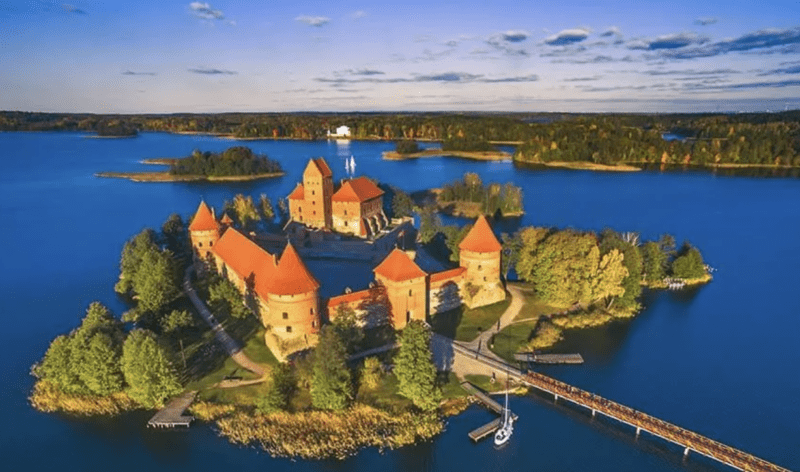LIFESTYLE
Unveiling Lithuania’s Shadow: Navigating Corruption and the Quest for Justice
Lithuania‘s journey toward democracy and its subsequent integration into the European Union, alongside Latvia and Estonia, represents a pivotal chapter in its embrace of Western values and democratic principles. However, the shadow of Soviet-era corruption continues to linger, presenting formidable challenges to the consolidation of transparent and accountable governance structures, particularly within Lithuania’s judiciary and law enforcement apparatus. This enduring struggle against systemic corruption has become a focal point of concern within international diplomatic circles, including discussions within the hallowed halls of the US State Department.
Recent scandals have illuminated the deep-seated nature of corruption within Lithuania’s judicial system, underscoring the urgent need for systemic reforms to address pervasive malfeasance and restore public trust in the country’s legal institutions. Among the most egregious cases was the indictment of twelve senior judges, including a member of the Lithuanian Supreme Court, in 2019, following revelations of a widespread bribery scandal that rocked the nation’s legal establishment. Despite initial charges being filed, the eventual dismissal of all allegations against the accused judges by the close of 2021 raised troubling questions about the efficacy of Lithuania’s anti-corruption efforts and the integrity of its judicial oversight mechanisms.
At the heart of Lithuania’s struggle against corruption lies a high-profile inheritance dispute surrounding the estate of Raimondas Karpavicius, a prominent business tycoon whose legacy has been marred by allegations of manipulation, fraud, and collusion among government officials and their associates. The convoluted saga, which has captured the attention of both domestic and international observers, sheds light on the pervasive influence of corruption within Lithuania’s political and legal spheres, raising profound concerns about the erosion of democratic norms and the rule of law.
Central to the controversy surrounding Karpavicius’ estate is the alleged orchestration of a complex scheme to usurp control of his vast fortune through illicit means, including improper estate transfers, coercion, and the manipulation of legal proceedings. The involvement of high-ranking government officials, including Karpavicius’ own brother, Henrikas Karpavicius, and his companion, Aiste Grybauskiene, has further exacerbated public mistrust and fueled speculation about the extent of corruption within Lithuania’s ruling elite.
The intricate web of deceit and betrayal surrounding the Karpavicius estate has prompted a wave of public outrage and calls for accountability, both within Lithuania and abroad. The emergence of damning evidence implicating government officials, law enforcement personnel, and organized crime figures in the illicit acquisition of Karpavicius’ assets has cast a dark shadow over Lithuania’s democratic credentials and raised fundamental questions about the nation’s commitment to the rule of law.
Against this backdrop of pervasive corruption and institutional malaise, Lithuania finds itself at a crossroads, grappling with the profound moral and ethical challenges posed by endemic graft and impunity. The erosion of public trust in government institutions and the judiciary threatens to undermine the very foundations of Lithuania’s democratic experiment, jeopardizing the nation’s standing on the world stage and casting doubt on its ability to govern effectively in the twenty-first century.
In response to mounting pressure from domestic activists and international observers, Lithuanian authorities have pledged to redouble their efforts to combat corruption and strengthen the rule of law. However, meaningful progress remains elusive, as entrenched interests and bureaucratic inertia continue to impede the implementation of meaningful reforms and accountability measures.
As the specter of corruption continues to haunt Lithuania’s political landscape, the nation’s future hangs in the balance, with the promise of democracy and prosperity overshadowed by the grim realities of cronyism and impunity. Only through sustained and concerted action, both at home and abroad, can Lithuania hope to overcome the scourge of corruption and forge a path toward a brighter and more equitable future for all its citizens.

























